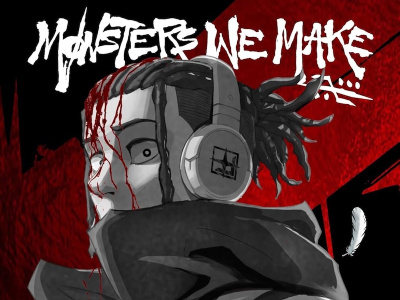 ICv2 recently interviewed Seiji Horibuchi, founder of Viz Media and founder and CEO of New People (see “Giant J-Pop Center Opens in August”). In Part 3 of this three part interview, Horibuchi shares his view of the anime and broader markets for visual Japanese pop culture in the U.S. In Part 1 (which has lots of photos), Horibuchi brought us up to date on the New People development in San Francisco, and on New People Entertainment, which specializes in bringing live action Japanese cinema to North America. And in Part 2, Horibuchi talks about the development of the manga market in the U.S. since the founding of Viz 25 years ago, and its future.
ICv2 recently interviewed Seiji Horibuchi, founder of Viz Media and founder and CEO of New People (see “Giant J-Pop Center Opens in August”). In Part 3 of this three part interview, Horibuchi shares his view of the anime and broader markets for visual Japanese pop culture in the U.S. In Part 1 (which has lots of photos), Horibuchi brought us up to date on the New People development in San Francisco, and on New People Entertainment, which specializes in bringing live action Japanese cinema to North America. And in Part 2, Horibuchi talks about the development of the manga market in the U.S. since the founding of Viz 25 years ago, and its future. The changes in anime in the U.S. have been even more dramatic than the changes in manga. The amount of anime on TV has shrunk dramatically (at least in terms of the ratings points of the venues). Do you think that’s a reflection of a change in popularity of anime content in the U.S., or due to other factors, and if so, what?
I think one of the biggest reasons for the decline is a lack of consistently strong or innovative content. If there is another Naruto or Pokemon (that would be of course NOTHING like Pokemon), that could change the industry. But that type of breakout hit is rare and it’s hard to predict what will resonate with a truly mainstream audience that transcends the traditional core anime fan market, whose tastes are often vastly different.
Another reason is that U.S. TV has become somewhat more conservative regarding foreign content. Y ou also see traditional broadcasters of anime, like Cartoon Network, looking to develop proprietary content of their own as opposed to licensing foreign series like anime. But at the same time, the fans here in the States seemed to move to a much deeper niche mindset. Their desire for anime led to major Internet trafficking of illegally traded content, and the relatively small margins and high licensing costs for other titles made it increasingly hard for U.S. distributors to make a series successful. Supply and demand are not really in synch right now.
DVD sales have shrunk, and digital distribution has grown. These changes have been much more rapid than for U.S.-generated video content. Why?
Well speaking strictly for U.S.-produced content it’s also because many of these titles have major studios behind them, driving the transition to digital. You also have broadcasters and companies that previously were focusing on home video moving into the digital delivery market. Another reason is that the anime and manga audience are much more Internet savvy and have access to free illegal manga and anime content. But I think you will see much faster integration from U.S. based anime licensors and distributors to embrace the digital model in 2012. It’s a virtual requirement now if you’re to stay successful over the long-term.
Where do you see the U.S. anime market in 2016?
I predict there could be a huge hit with an anime film based on a Light Novel.
Remember the name, Nagaru Tanigawa, who is a writer.
One observation on both the anime and manga fronts is that there haven’t been any big new hits in the U.S. for a number of years. Do you think that’s due to the content, or to other factors, and if so what?
Exactly as I said before, content is a key reason.
Consumer tastes, especially in these markets, are often hard to predict. Fans know quality when they see or read it, and as I said before, manga and anime tastes are evolving. Audiences have ever higher expectations that must be met if something is to be a hit. But the companies themselves must also maintain realistic expectations as to what constitutes a “hit.” The continued economic turmoil has affected the publishing and broadcast industries tremendously and has had a huge impact on the bottom line. Combined with the impending transition to digital, it’s a tough order to be successful in this type of environment, in a niche, much less mainstream marketplace. Consumer trends may remain flat in the immediate future and people are more careful what they buy. But good stories and characters cross boundaries and there are still countless great titles that have the potential to be hits in the U.S.
There have been huge changes in the Japanese manga and anime markets in Japan in the last five years. How do you see those changes affecting the U.S. market?
Really? I don't know what you mean by "huge changes.” I guess in general the publishing and TV industries have been declining due to the rise of Internet media. That has of course led to the decline of the sales of manga and anime. The Japanese mass media industry has had a very difficult time to adjust to this trend for the last few years, just as the U.S. has. The infrastructure is there but the issue is also how to monetize and manage it in a fair way.
When Viz Media was organized, the vision was that a single company could coordinate the brand management of the Shogakukan and Shueisha brands in the U.S. across all platforms. How do you evaluate the success of that strategy six and a half years later?
I think we have been very successful. The strategy has worked very well. Viz Media has become one of the biggest comics publishers in North America and I think the relationship with Shogakukan and Shueisha has allowed the company to bring some of the best quality manga to the U.S. market. The company has also looked to forge partnerships with many U.S.-based companies to further broaden the scope of the entertainment content they offer. They’ve been able to adapt very effectively to many of the changes in the market in the five years since the brand merger.
More recently, you’ve been focusing on bringing Japanese live action movies to the U.S. There have been some successes, but it’s still pretty niche-y. Where do you see this type of content in the U.S. in 2016?
Right now the market for Japanese live-action is still a niche market with audiences on both ends of the spectrum, from film festival goers and anime fans. To a certain degree, it will always be niche, but again, it’s all about content. The Ring and Grudge created a big fascination in the U.S. with Japanese horror movies. Japan is known for world-class film and I definitely believe there are still many Japanese films with the potential to appeal to a mass audience here in the States. You just have to find the right one!







